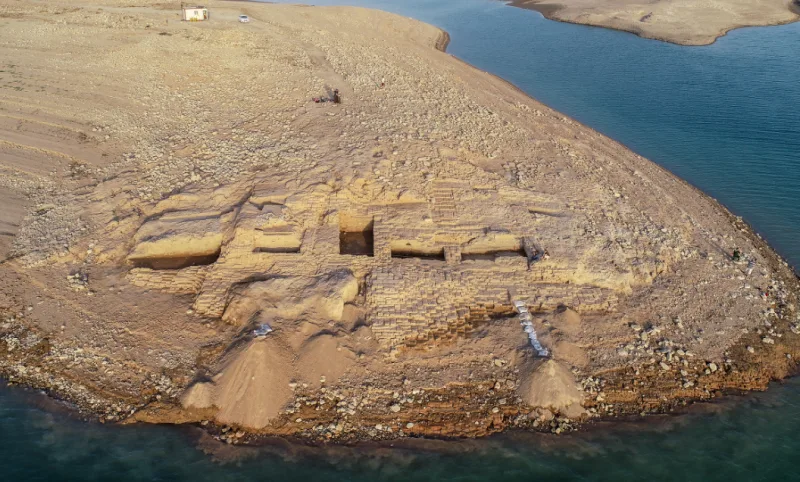
Drought reveals 3,400-year-old palace of mysterious empire in Iraq
A 3,400-year-old palace has been uncovered in the Kurdistan region of Iraq after a severe drought caused the water levels to dramatically decline.
The ruins of this ancient palace are located in the Mosul Dam reservoir on the banks of the Tigris River and were discovered by a Kurdish-German team of archeologists from the University of Tübingen and the Kurdistan Archaeology Organization, as reported by CNN.

Aerial view of the palace from the west. Credit: University of Tübingen, eScience Center, and Kurdistan Archaeology Organization
According to a press release from the team of researchers, the Kemune Palace can be dated to the time of the Mittani Empire, which is one of the least-researched empires of the Ancient Near East. The Mittani Empire dominated large parts of northern Mesopotamia and Syria from the 1500 BC to the 1400 BC.

Credit: Wikimedia Commons
The researchers state that the palace was a carefully designed building with mud-brick walls that were about 2 metres wide and stood about 20 metres from the river on an elevated terrace.
Wall paintings in the shades of blue and red were found, and the press release states that these findings are an "archaeological sensation", because these were likely common features of palaces at this time but have rarely been found preserved.

A mural fragment from the excavation site. Credit: University of Tübingen, eScience Center, and Kurdistan Archaeology Organization
Another unique finding includes ten clay tablets covered in cuneiform, an ancient system of writing, which could potentially provide insight into structures of the Mittani empire, including how the societies and economies were organized.
Archeologists first became aware of the site in 2010 when water levels in the Mosul Dam reservoir were low but were not able to excavate the site became submerged shortly after the dig.
Sources: CNN | Global News | University of Tübingen and Kurdistan Archaeology Organization










